Henchmen and Hirelings are frequently mentioned in the early editions of Dungeons and Dragon in the Dungeon Master Guide and in the Player’s Handbook. But how many of you actually use them in your games? I suspect that many of you do not use henchmen often but may use hirelings from time to time. But these non player characters can be integral to your story line. They may also provide your players an opportunity to build a decent sized group even though they have only a small number of live players.
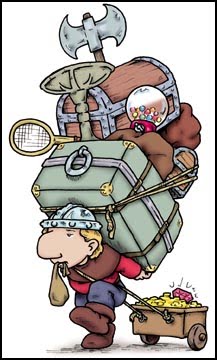
What is a hireling?
A hireling is a non player character that provides some service to the player characters for payment. They could be an expert such as a sage or an alchemist. Or they could be some peasant worked like the stable boy. Some potential hirelings which could come up in a game might include:
- An alchemist
- Stable boy
- Apothecary
- Beast handler
- Spy
- Mercenaries
- Pilot
- Ship captain
- Sage
- Scribe
- Ship crew members
- Valet
- Cleric
Obviously there are many other potential hirelings one could need during the course of an adventure.
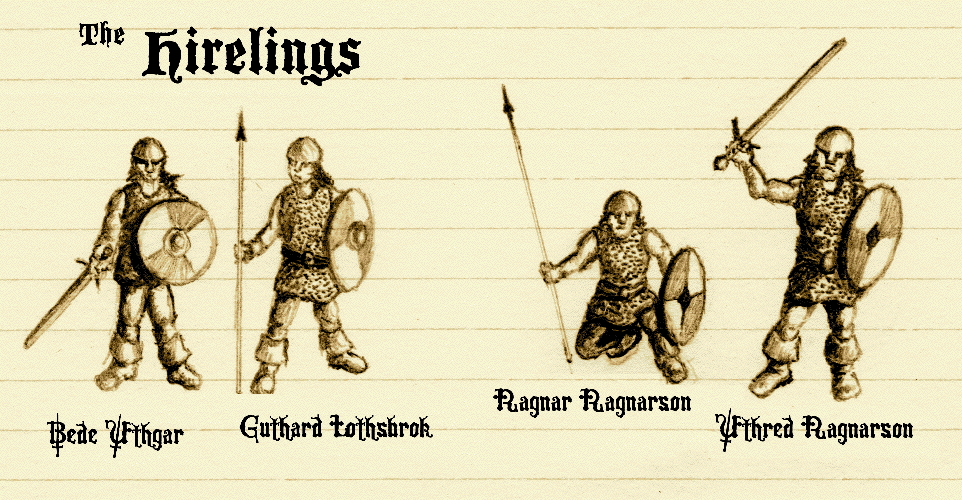
What is a henchman?
A henchman is a better grade of hireling. While money may still be a motivating factor for them these are permanent retainers or allies for the player characters. They are sidekicks.
So how are henchman and hirelings all that different?
A hireling is only motivated by the money. They will not stick around if the money runs short. And they are far more likely to flee in combat if things go wrong. They have no real loyalty to the adventurers. Their loyalty is subject to their own safety and their paycheck. If mistreated at all they will be gone in a heartbeat.
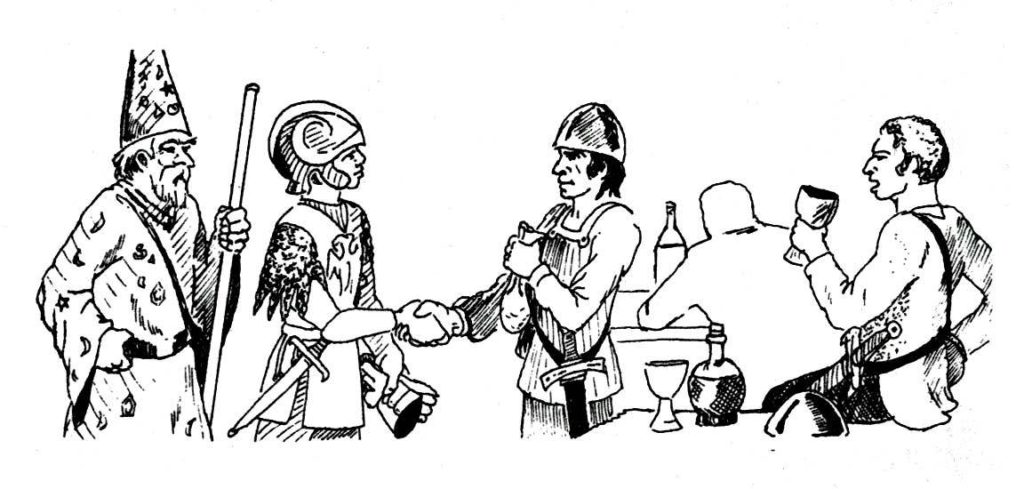
Henchman have basically disappeared in the newer versions of Dungeons and Dragons
The idea of Henchmen seems to be an “old school” idea. They were prevalent in the early editions of the game. Look closely at that iconic picture on the cover of the Player’s Handbook. You know the one I am referring to. The one with the Demon Idol on the Cover. Are those henchmen or hirelings that are dragging away the treasure? But recent editions barely make mention of them. They still exist. But many groups do not use them.
Hirelings still exist of course. One still has a need for a sage once in a while. The horses still need a stable.
Gary Gygax had an interesting statement about henchmen in the 1st Edition Dungeon Master Guide.
” Henchmen, whether male or female, are greatly desired by the discerning players, for they usually spell the difference between failure and success in the long term view. They are useful in individual adventures as a safety measure against the machinations of rival player characters, provide strength to the character and his stronghold, and lastly serve as a means of adventuring when the player character is unable to. “
There are some interesting things to note in this quote.
First, henchmen are critical, for higher level characters that have their own stronghold. This should seem kind of obvious. For how can a high level adventurer have a stronghold and still continue to explore? Someone has to guard the fort. And it needs to be someone loyal.
Second, not every party member, is trustworthy. A player who has his own henchmen with him (or her) is safer than one who does not. Adventurers are not all good aligned in Dungeons and Dragons. Some have motivations other than those that would benefit the whole party.
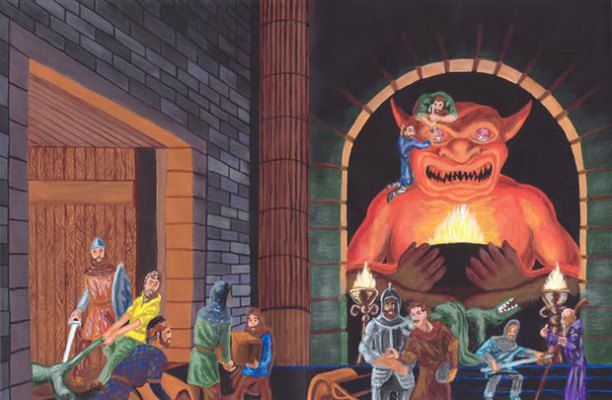
Followers in Dungeons and Dragons
So then we have this other category of people who might aid the adventurer in their travels. In 1st Edition the rules add this new category of followers. These people are attracted to the adventurer once they reach higher levels. Presumably it is the reputation of these high level adventurers that draws them to their service. They are more reliable than hirelings as they are not motivated solely by money. For success in drawing followers one must build a stronghold so that these followers will have a place to gravitate towards.
But isn’t a follower just a henchman?
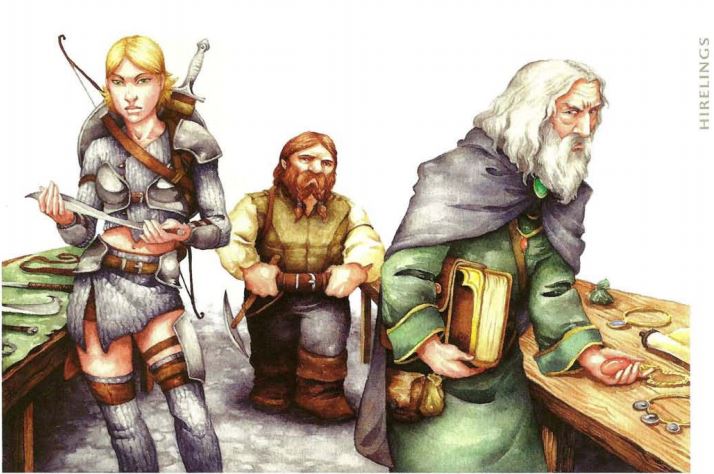
Sharing the spoils
A hireling is getting paid for their service. They get paid a fixed and agreed upon sum. They have no expectation of a share in the treasure gained from an adventure. A henchmen or follower, however, does expect a share. They are participating in the adventure out of loyalty to their friends but they feel like part of the group.
Maximum numbers of henchmen
The Advanced Dungeons and Dragons rules used charisma to determine the maximum number of followers a player could have. But suppose some of those followers die during the course of an adventure. Can they be replaced?
Let us suppose that player X has a maximum number of 6 followers and 3 of them die. A strict interpretation of the rules would suggest that player X can only ever have 3 more. Player X could not then gain another 6. The charisma score determines the maximum number that player will ever be allowed.
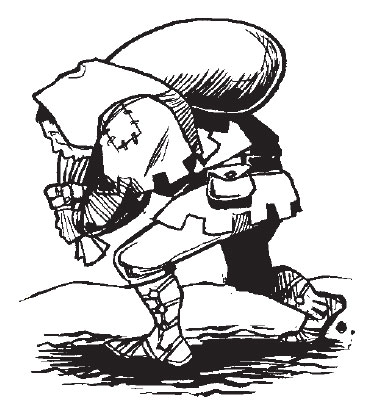
To make things even more confusing…..
Certain editions of Dungeons and Dragons throw another term at you. The retainer……. What is a retainer? Is it just another name for a henchmen or follower? If you read some of the basic set adventures such as B1 In search of the Unknown there is some discussion of retainers and hirelings. The hireling is still just a helper who gets paid for it. The retainer seems to have the characteristics of a henchman or follower.
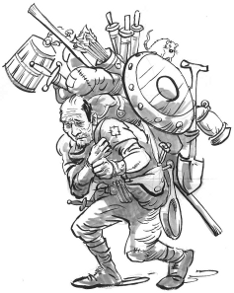
Hirelings and Henchmen in 5th Edition Dungeons and Dragons
While henchmen get little action in the 5th Edition game hirelings are still used. Specifically the 5th Edition DMG says this:
“Hireling NPCs rarely become important in an adventure, and most require little development. When adventurers hire a coach to carry them across town or need a letter delivered the driver or messenger is a hireling, and the adventures might never even converse with that NPC or learn his or her name. A ship captain carrying the adventures across the sea is also a hireling, but such a character has the potential to turn into an ally, a patron, or even an enemy as the adventure unfolds “
So basically a hireling is someone one might meet during the day and quickly forget shortly afterwards. They are just some minor person that one might hire to shine your armor or brush your horse. But occasionally one might turn out to be something more important like the ship captain referred to in the quote.
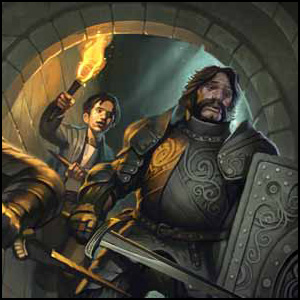
Some important considerations about Henchmen
While henchmen are generally loyal to the adventurer there are some things that should be considered:
- What alignment are they? They do not, necessarily, share the alignment the player has
- A charm spell might create a “temporary” henchmen that is loyal until the spell wears off
- Not every henchmen is actually an adventurer!
- Those henchmen that are adventurers expect a share in the treasure!
- Not every henchmen will survive combat. Players who waste the lives of their henchmen will quickly find out that others are not too interested in becoming their new ones
- The lifetime limit of henchmen might preclude gaining new ones should the old ones die
- Does the player “play” the henchmen or does the DM?
- Is a henchmen likely to give up the magic weapon that they brought with them just because a player character demands it? Not likely. But they may use their magic items to aid the adventurer in a time of need
- Henchmen could mutiny if they are mistreated. Or they may just leave. Either way…they still count against that maximum number of henchmen allowed.
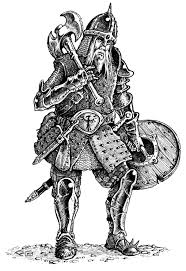
Henchman, Hirelings, Followers and Retainers – what does it all mean?
Ultimately hirelings are just people that get paid to do some service or to serve for a limited time. Followers, retainers and henchmen are loyal friends and allies to the player characters. These non player characters allow the party to extend their group by a few members and provide additional security.
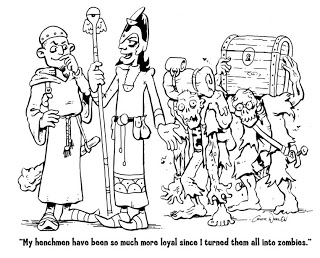
If you enjoyed this article then perhaps you will enjoy these as well:
- Sphere of Annihilation
- Underwater Adventures
- Dungeon Maps
- Torture Devices
- Sieges
- The Tax Man
- Psionics
- Morale
- Turning Undead



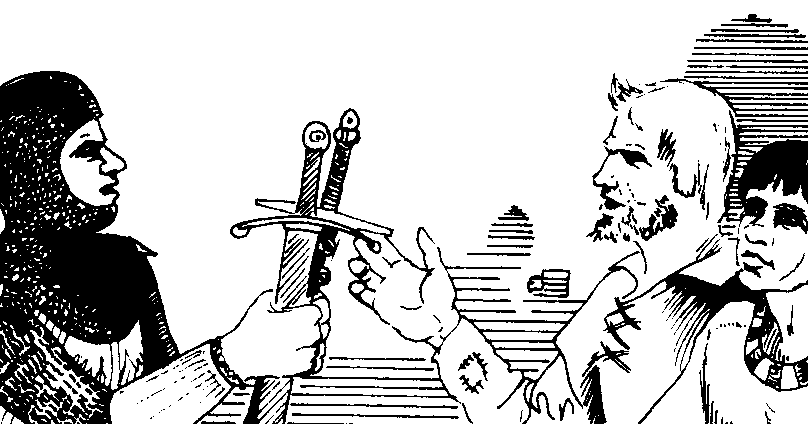
When I was playing 1e AD&D as a kid in the early 80’s, hirelings and henchmen were quite sought after by the members of our group. They were seen as not only helpful retainers, but as something of a sign of prestige. I DM for my son and his friends now days. They are all between 13 and 15 and none of them has sought out any hirelings, even when presented with the opportunity. Indeed, they are seen to be something akin to leeches, siphoning off precious treasure. In the (rare) instances that I find myself as a player, I still quite like having something of a retinue. Great post. Thanks!
Yes. My own players seem to have the same attitude about hirelings and henchmen. They are just leeches for XP and Treasure.